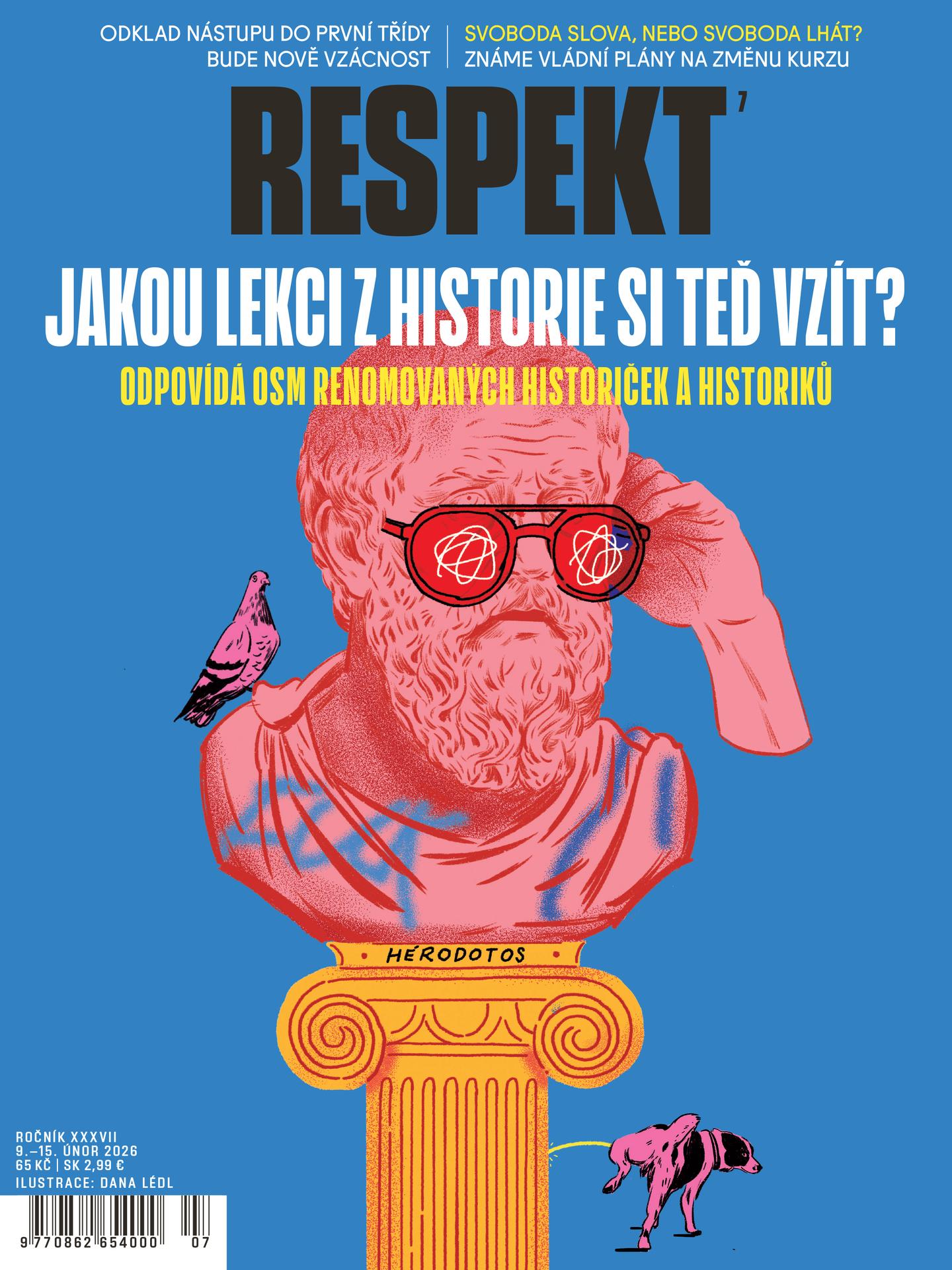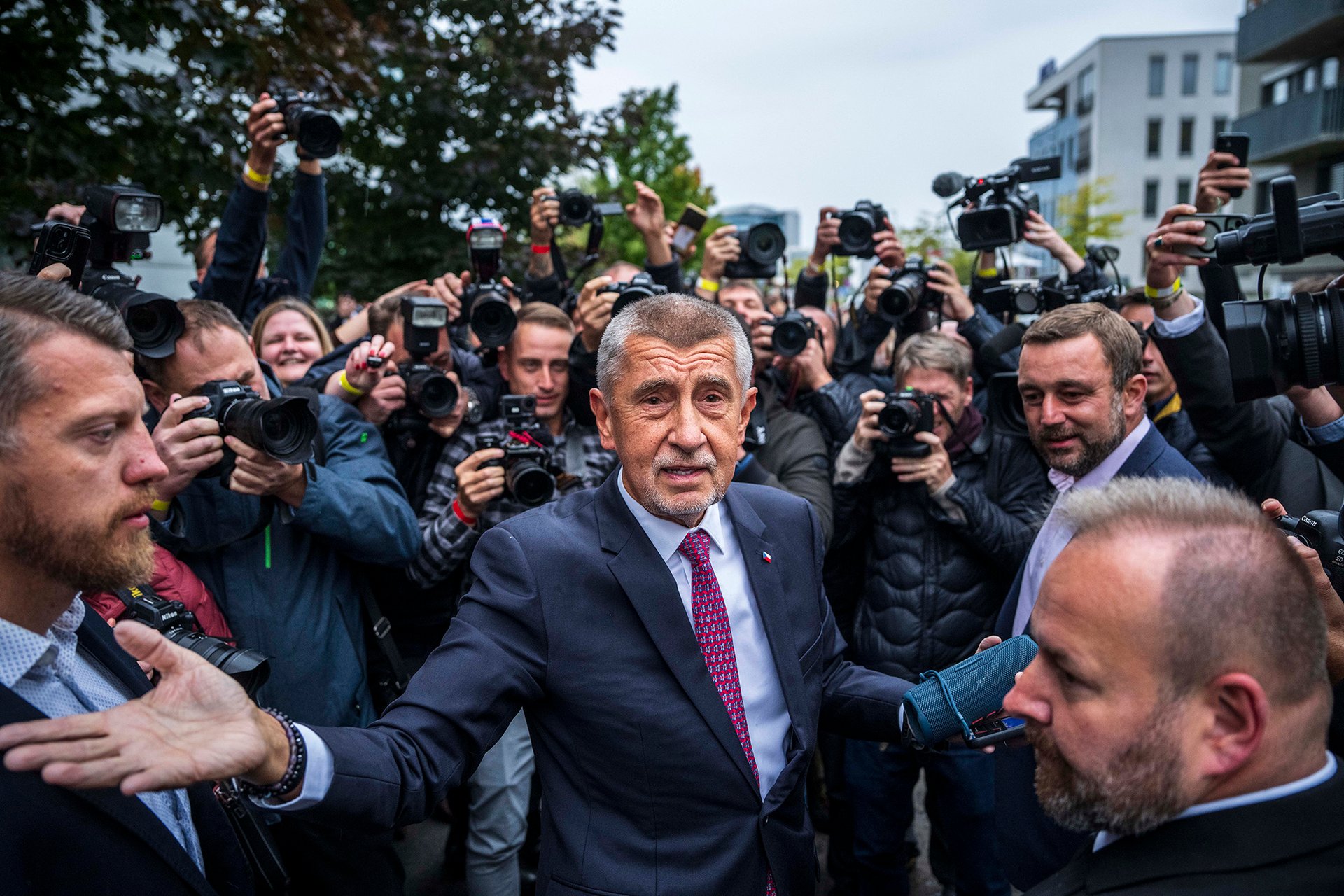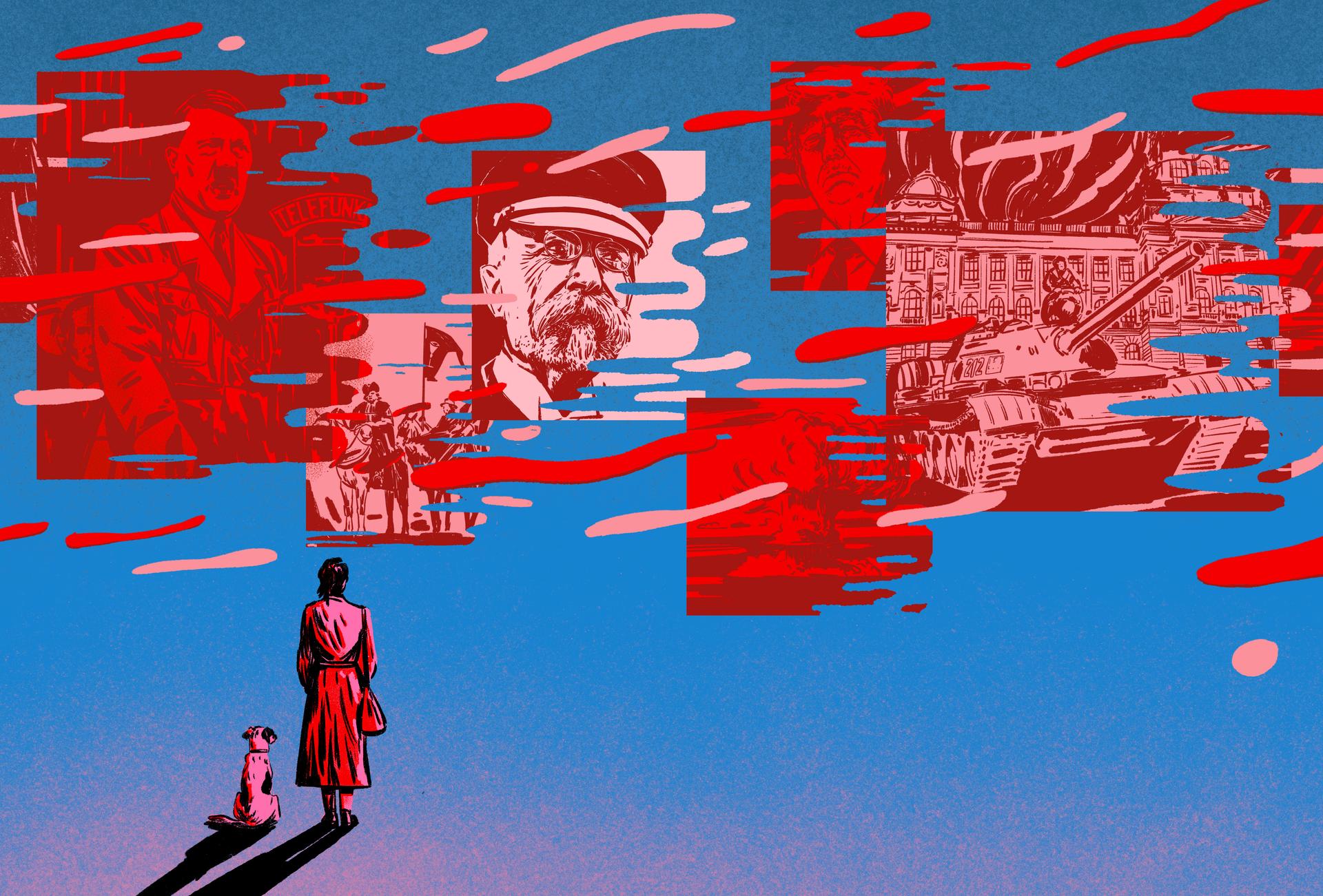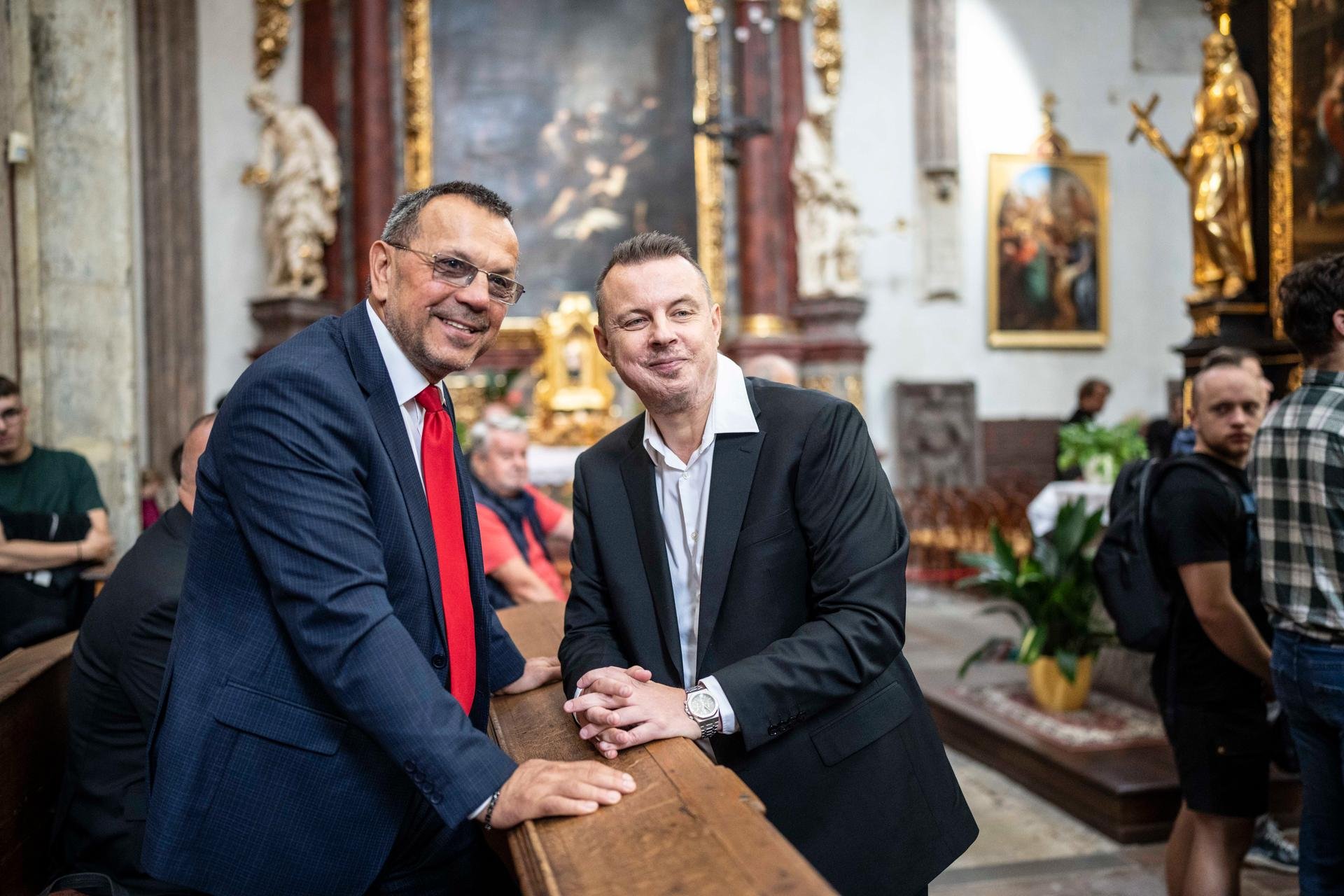Europe needs to be a more inclusive society
Interview with the Director of the European Union Agency for Fundamental Rights
You probably did not know that almost 50% of Jewish people living in some European Union Member States have considered leaving as a result of serious harassment. You also probably did not know that 66% of LGBT individuals living in the EU are too scared to hold hands in public. Countless statistics like these have been revealed by surveys done by the EU Agency of Fundamental Rights (FRA.) These surveys are easily accessible online and are displayed in informative, interactive charts and graphs accessible to anyone.
While speaking to Director of the FRA Morten Kjaerum, he revealed his personal opinions on the current human rights atmosphere in the EU as well as the efforts being made by the FRA. We discussed a myriad of topics ranging from the delicate process of deinstitutionalization to the Pride Parade set to take place this in Prague this August. Kjaerum has been the Director of the FRA since 2008 and has previously served as the founding Director of the Danish Institute for Human Rights. He has also written extensively on topics such as refugee law and racial discrimination.
The FRA works hand in hand with EU agencies and national governments to conduct surveys as well as social and legal research on a variety of topics relating to human rights. The information found by the FRA is then passed on to inform civil society as well as governments and many other institutions about the human rights situation in member states as well as what needs to be done. The FRA surveys on topics including Anti Semitism, Roma, LGBT, and racism can be found on their website.


Kjaerum reveals that in some areas of his work he is pleased with the success being made while in others, he is simply losing patience.
In the course of your career, have you detected any trends regarding the human rights atmosphere in Western Europe and the post-communist countries of Eastern Europe?
If we look at the EU as a whole, then I would say that one trend I have seen is that in the last five years, there has been a continuous mainstreaming of human rights into all of the different policy areas. Also, the understanding that human rights is an important element of our security policy, immigration policy, funding policy, data protection, etc. has been increasingly mainstreamed into our society. If we then look at different regions of Europe, you see very different patterns. I would say there are problems in all twenty eight member states, some similar and some different. In the west, the issue of racism has been more profound; they have been more exposed to migration for a longer time so it is not that surprising.
The traditional rule of law issues are not as quite as developed in some of the Eastern European countries compared to Western European countries. You have more social rights challenges in southern Europe than you have in northern Europe. In northern Europe you have more data protection issues than you have in other parts. It all depends what issue we are looking at. In a way, that is what makes my work so pleasant because in a sense, it is not always the same countries we are looking at.
Have you found that post-communist countries are more or less accepting compared to others with democratic pasts?
It depends what is being accepted. Is it ethnic minorities, national minorities, or LGBT people? We definitely have seen in a number of Central and Eastern European countries a rapidly increasing tolerance with sexual minorities, even though they came from a more intolerant outset. We still have to see how the hostility towards migration and immigrants will develop with an increased level of immigration from third countries.
Another element I would point to would be on rule of law issues. But again, some of the Eastern European countries have actually now bypassed some Western European countries because they have embraced new technology. In some of the Western European countries, the administrations of justice are still hanging on to some old traditions in their court systems. The Eastern European countries that were changing their justice systems anyway went straight to using new technologies. This has done away with long waiting periods and delays in justice.
It is common in the Czech Republic for Roma school children to be taken out of public schools and placed in separate, “practical” schools with limited curriculums because they are considered problematic or intellectually inferior to the others. This puts them at a huge disadvantage and sets them up for failure later in life. What has the FRA been doing to end this?
The segregated schooling systems in some of the member states have continuously been criticized from the human rights environment. We have the very famous court decision from the Strasbourg Court against the Czech Republic, which is a leading case. In that case, a lot of FRA material was used to substantiate that this is a phenomenon in a number of member states. Very specifically, a lot of our surveys are being used in courts. At the same time, another of the things I like about our mandate is that we also share good practice and have a working group of member states looking into these issues and how we can change the situation and be fundamental rights compliant and more importantly, how can we ensure that Roma children get proper schooling.
They are very pleased to see that there are some very important initiatives in the Czech Republic as well as in many other member states moving ahead and increasing the level of education for Roma. I would say we already see that the Czech Republic is better off than most other European states where you have Roma. Now with the new initiatives I think that the whole thing can be accelerated, which is needed. As you can see from the survey, the Roma are way behind the majority population.
Also in the survey, just 7% of Roma said that they were involved in Roma advocate organizations. Why do you think such a small amount of Roma join these organizations that are there to help them?
Many of the Roma in Europe today are the most marginalized and impoverished in our society. One of the things that shocked me in the survey was the number of Roma reporting how often themselves or family members would go to bed hungry.
Of course, When you have poverty at that level, in a group population, then its a question of survival day to day so it is difficult to find surplus time to engage in more social and community work. At the same time, we do see a number of young Roma that are coming out of the education system engaging very actively. I see a new trend with much more engagement from the side of the Roma so it is less people like me speaking on behalf of them, but Roma themselves articulating their needs and how they see the future. We can see from the survey that there is good practice when you have engagement between the Roma and local community.
For example, there is a city in the Czech Republic where there were very successful housing projects. When we looked into it, we found that one of the reasons it was so successful was because the Roma themselves were engaged in finding solutions to their housing challenges but secondly because the majority population was engaged. If you can manage to engage the Roma and the people living with the Roma, you have the best chance for success and do you know what? It’s a low hanging fruit. When we ask municipalities about the sort of action they take, we interview people who have been working on Roma issues for years and have never met a Roma, so maybe we could start there.
Just recently, San Francisco held its own Pride Parade where two serious physical attacks occurred. In August, Prague will continue its tradition and have a pride parade that has become the biggest LGBT festival in central Europe. Is the FRA involved in efforts to protect participants of the parade or do the police handle it?
It is not part of the mandate of the agency, we are just 115 people and we deal with all human rights issues so we cannot work at that very specific level. What we can do is create an alertness and awareness about the obligations of the police and authorities to take responsibility. I think the agency has contributed in a profound way throughout Europe to raise awareness about the discrimination of the LGBT community and the level of hate crime targeting the LGBT community. The data that we put in our surveys had never been surveyed before. When we did the survey on LGBT, we had 93,000 respondents, the biggest in the world. It gave us tremendous insight into what the challenges are of being a sexual minority in Europe today.
When we say 20–25% of the LGBT community said that they have been physically attacked because of their sexual orientation, the authorities cannot run away from these findings. When we ask if they turn to the police, 80% or more say no. When we then ask why, they say we don’t trust the police. The police cannot ignore that and they haven’t ignored it in most places. The pride parade has become a test and demonstration of how seriously the police have taken their obligations. They have said of course you can demonstrate, but do it in the forest out there, not in the city center. Now we are seeing in all member states that LGBT parades are taking place in the cities and the police are protecting them.
This is a contribution from the FRA as well as many other organizations; we are not the only ones. I would also like to highlight the key actors who play a very important role: The politicians and those who have easy access to the TV cameras and microphones. It is important how they address these issues and speak about an inclusive society in non-derogatory ways. It gives legitimacy to others saying the same and the more people who say it gives more legitimacy to hate crimes. Those who have access, whether it’s politicians, opinion makers, or journalists, need to consider what they say carefully because words create realities.
In all EU countries, living independently with at home care is a right had by all disabled persons. However, many end up being forced into institutions because getting the care they need at home is extremely difficult. What does the FRA do to make living independently with care a reality?
We have done a number of reports on independent living, which is a key issue in the UN convention of CRPD (Convention on the Rights of Persons with Disabilities.) We have pushed member states to move ahead on creating better facilities to move people into from institutions for independent living. Of course, there is support in independent living; there is a support system. It goes without saying that it is a process. We do see now a gradual process of this moving out from institutions.
But of course, with the austerity measures and economic crisis, there is a big danger in deinstitutionalization into nothing. With that, many of these people are worse off. We have seen in some countries that started deinstitutionalization twenty years ago that, if it is not done carefully, you see increased suicide rates and a vast increase of people ending up in prisons. There are some very delicate balances that one needs to take into consideration when working on deinstitutionalization. During the meeting with the Czech Human Rights Administrator Jiři Dienstbier, I suggested that they help us by giving us some good examples from the Czech Republic of deinstitutionalization and care in the local community. We very much look forward to collecting good practice material.
Recently in a survey conducted by the FRA, 66% of Jewish people said they consider Anti-Semitism a major problem and 76% said that anti-Semitism has increased over the past five years. Did these statistics come as a surprise or did the FRA expect high numbers like these?
We were very surprised. What surprised me the most was that in three member states, a little less than 50% of Jewish people said that they had seriously considered leaving the country because the of the security situation. That tells us about a very high level of fear. That is something we need to take into consideration. If you also look at the LGBT survey, you see another similar figure. Across all countries, even the liberal Nordic countries, which are traditionally more open to LGBT, we see that around 66% tell us they do not dare to hold hands in the street.
It is the fear of showing who you are when the Jews say we considered leaving and the LGBT say they don’t show themselves in public. It shows how much we still need to do in Europe to be a more inclusive society. Again, authorities need to be more alert. I am pleased to see that all member states are eager and willing to move ahead because of the figures the FRA has put on the table. It is the first time we see these figures and they cannot run away from it.
Another shocking statistic from the same report revealed that 76% of Jewish people who have been subject to anti-Semitic harassment did not report it. How has the FRA encourage victims to report the crimes so that awareness is spread and offenders are punished?
We see a very low level of reporting, even on the most serious and grave incidents of violence. Vast numbers, in some of our surveys up to 80% are not reporting. When we ask why they didn’t report it, it is often a lack of trust in the police and they don’t believe it will lead to anything. Some even say that it is part of being who I am that I will be attacked every now and then. This is the worst because it means they have internalized it. This is when it really becomes problematic. This is why we have called on the police to be more alert to how they receive complaints of victims of hate crimes.
Linked to that, we are working closely with civil society, the equality bodies, and the national human rights institutions to raise awareness on people’s rights. The victim support directive is a new legal development from the EU and came into force last year. It asks member states to establish victim support institutions in every member state. What we see in some states is the official victim support institution as well as civil society organizations working together to assist victims. One of the things I got from being in the US while speaking with the Ministry of Justice in Washington D.C. was that you will not move on hate crimes if you don’t mobilize civil society and I think that is a very important point.
The FRA has used the events of the holocaust, which is an ironic choice, as a method of teaching human rights in places like schools. Has this been a success? Did these programs meet any criticism?
Whether it was a success it is too early to know, only the future can tell us. It did not meet with any criticism. It was more unexpected and met with surprise. We worked very hard to make it not a history class but a teaching of how you as a civil servant can learn from what went wrong back then and how you are part of a wheel that is grinding. It can grind one way and raise human rights and make a nice society or, it can grind the other way so that you deteriorate, alienate, and marginalize vulnerable groups, leading to what we saw in the 30’s and 40’s. You are part of the wheel and how do you bare that responsibility? The reaction to the teaching was “whoa,” this is still relevant.
It is possible that some EU citizens who are not members of specific minorities or groups think that the FRA does not affect them?
One of the big challenges for human rights is that once, many years ago, human rights were always about foreign and faraway places, for example the apartheid in South Africa. Now that racism has come closer and closer, we do not see it in the same way. When it is in our own society it certainly becomes a social issue. In that way, the human rights world has to be alert and careful that it does not become only issues relating to minorities. Of course, vulnerable minorities will always have a high priority but we need to be careful that the majority population sees that human rights is protecting everyone. Let us not forget issues like data protection, access to justice, violence against women, and the rights of the child. There are a lot of issues that we are dealing with which are also addressing issues about everybody.
In this modern day, what does data protection specifically entail?
Data protection is the protection of your private data and your right to privacy. When you go to the doctor, the confidentiality that you expect is respected when your data and what you told the doctor is not all over the place. We have a very big pool of issues where we are only at the beginning of understanding what they are about and secondly and more importantly, we are at the beginning of figuring out what sort of control mechanisms we need to establish. The protection mechanisms from thirty years ago do not compare with the increased level of technology we have today. We need to address this for many reasons: First, for the right to privacy and secondly because of a widespread mistrust in the authorities. How can I trust that I can use my telephone and email without everybody listening in to it? There needs to be a regain in trust.
Recently, Czech Human Rights Minister Jiři Dienstbier proposed enlisting a quota for the number of women in government that would require a balanced number of men and women on candidate’s lists. Many politicians were against the idea and it was rejected for the time being.
I must say on a personal note, because it is not directly under the FRA, that I am running out of patience. I think we need to see more efficient gender equality mechanisms. I appreciate any initiative, which can lift and create a higher level of gender equality. There is still far too much lack of awareness and serious attempts to better balance society. We just launched the biggest survey in the world about violence against women where we interviewed 42,000 women. The figures there are shocking. What is also shocking is that not much is being done. It is an issue that most want to go away and not have to deal with. Why is it that we have become much more sensitive to anti-Semitism and racism but the most extreme forms of hatred targeting women have become a normality? We need to take many more steps to create real gender equality in our societies.
How does the FRA work with the media?
We are of course transparent and open and interact with the media but we have a bit of a problem. We are not monitoring individual member states. I am not making a report on the just the Czech Republic, Denmark, or France. A lot of the media often wants a headline about their country or city and very rarely I can deliver a headline on that. I would say that for example on violence against women or Roma issues, our data is being used by a lot of journalists in different ways. Now with the interactive maps, they can make their own story by linking and comparing information. More and more journalists are using that. We are working on making that even more accessible in years to come so that it really becomes “The Tool.”
When was the first survey made and how has the information been used over the years?
The first survey was made in 2008. It was on ethnic minorities. We interviewed 23,000 migrant groups throughout the EU and we are repeating it now. This is where you can start seeing trends. Are things moving in the right direction? Wrong direction? With a number of the policy initiatives that were taken from our first survey, member states could see what issues they should address. We can now see in the new report if this had an impact. When you start making indicators of what you want to achieve and if things are progressing, the accountability towards the citizens comes up.
Pokud jste v článku našli chybu, napište nám prosím na [email protected].










